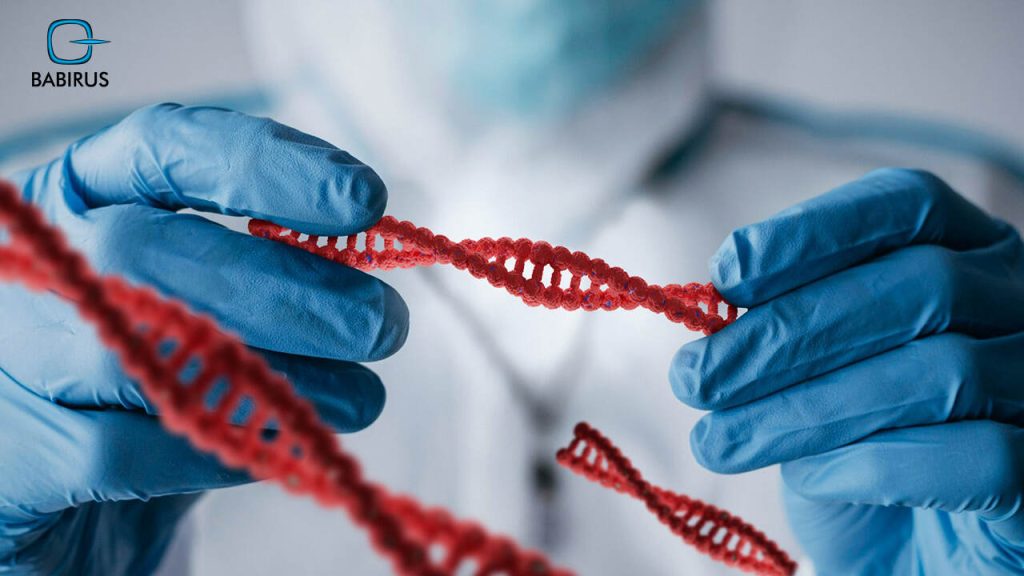Exploring the Impact of Molecular Diagnostics in Healthcare: Uncover the Latest Trends

In the ever-evolving landscape of healthcare, emerging technologies continue to redefine patient treatment and management. Among these game-changers is molecular diagnostics, a scientific discipline that provides valuable insights into the molecular underpinnings of diseases and empowers healthcare professionals to deliver personalized care.
In this article, we will underscore the importance of molecular diagnostics in healthcare, explore the current trends driving its adoption, and glimpse into the promising future it holds.
Importance of molecular diagnostics in healthcare
1. Early Detection and Accurate Diagnosis:
Molecular diagnostics enables the identification of genetic mutations and variations at the molecular level, enabling clinicians to detect diseases at their earliest stages and obtain precise diagnostic results. This timely detection allows for targeted and personalized treatment plans, ultimately improving patient outcomes.
2. Tailored Treatment and Personalized Medicine:
Molecular diagnostics aids in the precise identification of biomarkers and genetic variations related to certain diseases. This enables clinicians to develop personalized treatment regimens, optimizing therapy response and minimizing adverse effects. Patients benefit from therapy plans tailored to suit their unique genetic makeup, increasing their chances of a successful recovery.
3. Disease Monitoring and Prognosis:
Molecular diagnostics also plays a crucial role in evaluating treatment efficacy and monitoring disease progression. By regularly assessing biomarkers and gene expression patterns, clinicians can track the effectiveness of interventions and adjust treatment plans accordingly. This proactive approach helps optimize patient care and improves long-term health outcomes.
4. Research and Drug Development:
Molecular diagnostics aids in research and drug development. By analyzing genetic markers or disease-specific biomarkers, researchers can better understand disease mechanisms, identify potential drug targets, and develop more effective and targeted therapies.
Read now: A Guide to Choosing the Right Molecular Diagnostic Test
Current 7 Trends in Molecular Diagnostics:
The continuous development and innovation in molecular diagnostics aim to make diagnostic tests faster, more accurate, and less invasive, to achieve the ultimate goal of delivering more personalized and effective treatments in healthcare. These trends include:
1. Next-Generation Sequencing (NGS):
The great feature of NGS technology is that it enables rapid and cost-effective DNA sequencing, which uncovers a comprehensive genetic profile and facilitates the identification of disease-causing mutations and risk factors.
Moreover, the ability to do a complete sequencing of the entire genomes by the NGS helps effectively in identifying genetic disorders, tailoring personalized treatment plans, and advancing research in disease mechanisms.
All of that made NGS a basic instrumental in cancer genomics, inherited diseases, and infectious disease diagnosis.
2. Liquid Biopsies:
This molecular diagnostic trend is considered a non-invasive alternative to traditional tissue biopsies and can be done more frequently without any side effects, as liquid biopsies involve the analysis of circulating tumor cells, cell-free DNA, and other biomarkers found in bodily fluids.
Furthermore, the liquid biopsies provide real-time insights into disease progression and treatment efficacy.
Thus, this non-invasive technique is increasingly used for early cancer detection, tracking tumor dynamics, detecting minimal residual disease, monitoring treatment response, and identifying potential resistance mechanisms.
3. Point-of-Care Testing (POCT):
The world’s shifting toward decentralized healthcare services has empowered the popularity of POCT, which allows medical professionals to perform efficient diagnostic tests at the patient’s bedside or in primary care settings.
The use of POCT is significantly reducing the time to diagnosis and treatment in all locations, which is highly important in managing infectious diseases and providing immediate results for conditions such as COVID-19, influenza, and sexually transmitted infections.
Therefore, there are big investments in developing portable and rapid testing devices to boost the POCT applications, that enhance patient care by enabling timely medical decisions and interventions.
4. Microfluidics and Lab-on-a-Chip Technologies:
Microfluidics and lab-on-a-chip technologies are considered one of the greatest trends in molecular diagnostics, this trend professionally integrates multiple laboratory functions into a single chip, allowing for quick and efficient analysis of biological samples.
These technologies not only offer high sensitivity and specificity, and require smaller sample volumes, but also reduce costs. Furthermore, the automation of these technologies makes them accessible in various healthcare settings, including remote and resource-limited areas.
Moreover, these molecular diagnostics platforms are being used for point-of-care testing, infectious disease detection, and genetic screening.
5. Biomarker Discovery:
The discovery and validation of new biomarkers are central to molecular diagnostics, as the biomarkers are specific genetic, protein, or metabolite markers that can be used to detect diseases, monitor treatment response, or predict disease progression.
Moreover, biomarker discovery is vital in developing targeted therapies and personalized medicine approaches and improving diagnostic accuracy and treatment outcomes.
Thus, there is high interest in developing the used technologies and bioinformatics.
6. Integration of Multi-Omics Data:
The main concept behind the multi-omics approaches is collecting data from genomics, transcriptomics, proteomics, metabolomics, and other omics technologies to provide a complete understanding of disease mechanisms.
Especially that the integration of multi-omics data helps in identifying complex interactions and pathways involved in diseases, leading to more precise diagnoses and custom-made treatment plans based on a patient’s unique molecular profile.
7. Digital Pathology:
Digital pathology involves digitizing histopathology slides and using computer algorithms to analyze tissue images. This trend enhances the accuracy, speed, and reproducibility of pathology diagnostics.
More than that, digital pathology also enables remote consultation and collaboration among pathologists, which improves diagnostic services’ accessibility and efficiency.
Thus, all the advancements in image analysis and machine learning algorithms further enhance the diagnostic capabilities of digital pathology.

The Great Impacts of Emerging Trends in Molecular Diagnostics:
The evolving trends in molecular diagnostics are impacting healthcare in amazing ways:
· Enhanced Precision in Diagnosis and Treatment:
The use and integration of advanced technologies such as NGS, liquid biopsies, and multi-omics data allow for more precise identification of disease-causing mutations and biomarkers. Which leads to tailored treatment plans, improves patient outcomes, and reduces adverse effects.
· Non-Invasive Monitoring and Early Detection:
The great thing about these molecular diagnostic techniques is that they offer non-invasive options for disease monitoring and early detection, leading to better and continuous monitoring of disease progression and treatment response, allowing timely interventions, and improving long-term diagnosis.
· Accelerated Drug Development:
With the popular trends in molecular diagnostics, researchers can enhance the drug development process, deliver efficient targeted therapies, identify specific disease mechanisms, and improve the efficiency of treatments. Thanks to the effective identification of abnormal biomarkers and genetic targets.
· Improved Accessibility and Decentralization of Healthcare:
The development of portable and rapid testing devices for POCT and lab-on-a-chip technologies not only enhances the accessibility of molecular diagnostics but also improves the delivered medical services for patients, reduces the need for centralized laboratory facilities, and enables timely medical decisions in different healthcare settings.
· Integration with Artificial Intelligence (AI):
The combination of molecular diagnostics and AI algorithms develops data analysis capabilities, leading to enable real-time interpretation of complex datasets, support accurate predictions, improve risk assessments, advance clinical decision support systems, and ultimately enhance the delivered patient care.
Eventually,
Molecular diagnostics is getting more and more interest as a key discipline within healthcare, transforming the way diseases are diagnosed, treated, and monitored. Especially with its early detection, personalized medicine, and prognostication possibilities.
Babirus Medical Equipment LLC is a pioneering company at the lead of molecular diagnostics trends, offering cutting-edge solutions, compatible services, and full support, contact us now!
